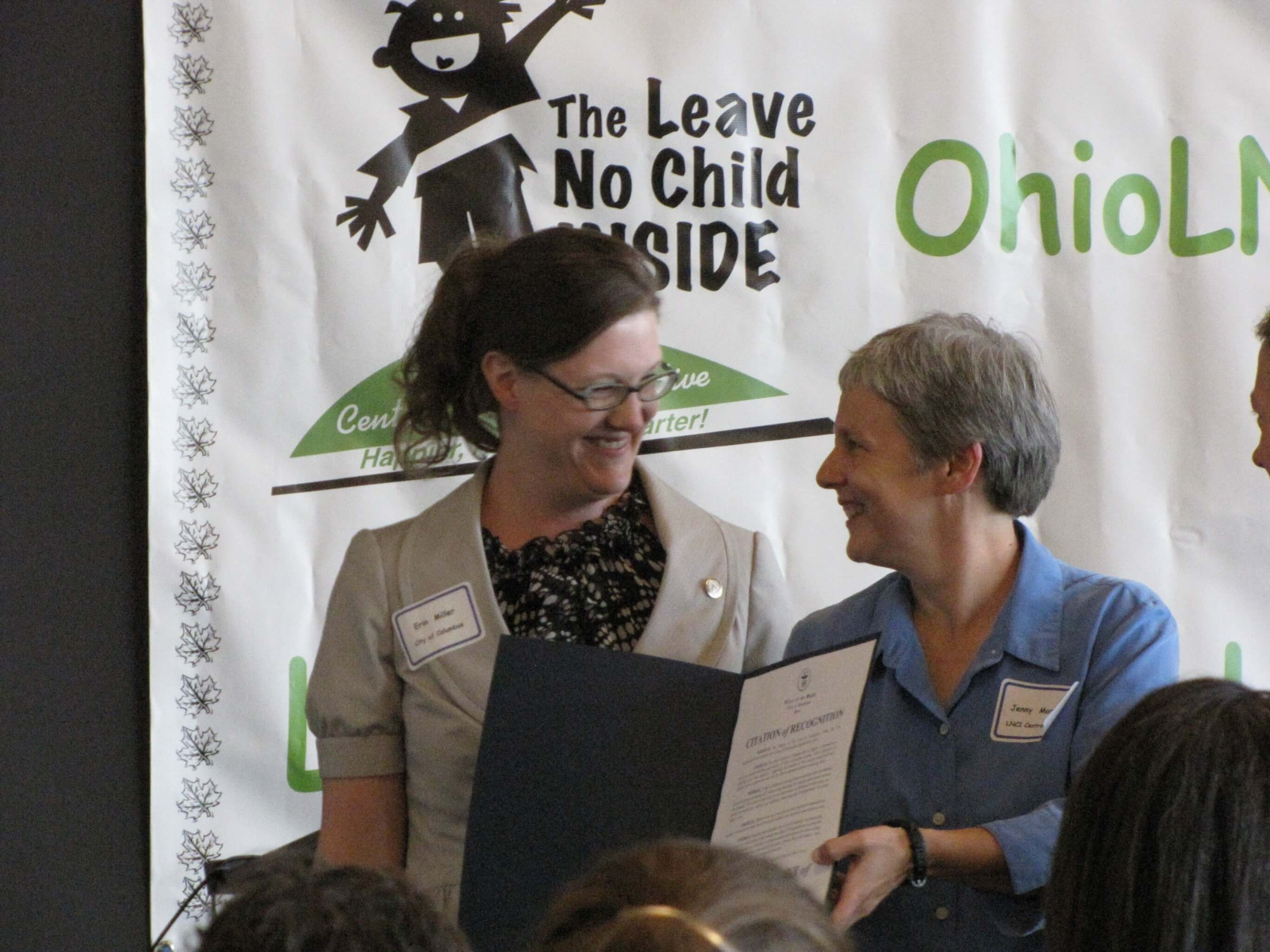Calling all teachers: EECO Conference
April 3, 2012Nature Explore Workshop
April 10, 2012On March 28 parks and recreation 250 parks and recreation professionals and citizen advocates from across the country ascended on Capitol Hill to meet with U.S. Senators and Representatives to discuss issues important to the seniors, adults and children in our communities. The Ohio Parks and Recreation Association, an affiliate of the National Recreation and Park Association, sent five delegates to D.C. to meet with Ohio’s congressional members. In each of the meetings we identified our legislative priorities, but more importantly we let the legislators know how the legislation affected their constituents in the communities they represent. We focused our message on children and families, and how parks and recreation are key factors in improving the health, environment, economy and quality of life in every community in Ohio. With November elections on the horizon and polarized environment in D.C., it is doubtful that much significant legislation will move but it is important to continue our advocacy for important causes. Here is a summary of the relevant legislation and our experience on Capitol Hill:
- No Child Left Inside Act, H.R. 2547 and S. 1372 were reintroduced in 2011, but the legislation most likely will not move until the Elementary and Secondary School Act is reauthorized which could be after the elections in November. The House bill has 49 co-sponsors including Rep. Betty Sutton and Rep. Dennis Kucinich from Ohio. We are encouraging Rep. Marcia Fudge to sign on as a co-sponsor. The Senate bill has only 14 co-sponsors but one of them is Sen. Mark Kirk (R-IL), who is the only Republican cosponsor. W are encouraging Sen. Sherrod Brown to sign on as a co-sponsor. For NCLI to pass it is critical to have bipartisan support. Ohio’s legislators were generally supportive conceptually, but were reluctant to approve the new spending that is included in NCLI. Keeping NCLI in front of the legislators is important and much work to get co-sponsors can be done in our local congressional districts.
- The Surface Transportation Program includes alternative transportation programs that are important to communities in Ohio. Transportation Enhancements, Recreational Trails Program, Safe Routes to School and Complete Streets have built bike/ped trails, paths that safely get kids from home to their school, park and recreation center. The House and Senate could not agree on a Surface Transportation multi-year reauthorization bill before the current legislation expired on March 31, and a 90 day extension was approved that maintains status quo for all programs. There are concerns with the mult-year proposals that would lump the Transportation Enhancements and Safe Routes to School programs into a pool of unrelated programs and send the money to the state DOTs to decide how to spend the money on transportation projects. Rather than Transportation Enhancements and Safe Routes to School receiving dedicated funding in the budget, trail and sidewalk projects would have to compete with highway construction and bridge repair projects. It would be unfair to pit highways against trails if you consider that bike/ped spending is less than 2% of the federal transportation budget. Amendments have been filed to restore dedicated funding for bike/ped/trail projects, but their fate is uncertain in a final transportation reauthorization bill. Most of Ohio’s legislators appreciated the value of trails, but some were skeptical about the federal government’s role in funding biking and walking trails. We advocated that non-motorized transportation such as trails are an integral part of the nation’s transportation system, and valued by communities for their health, environmental, economic and quality of life benefits.
- The Land and Water Conservation Fund State Assistance program is under threat. LWCF State Assistance is a 50% federal and state/local grant program that has developed community parks, trails and outdoor recreation facilities in all of Ohio’s 88 counties. The Department of Interior, the agency that oversees LWCF, is proposing to take money out of an already meager State Assistance account and move it to a national competitive grant program that favors federal agencies and landscape scale projects over community-based outdoor recreation. This proposal contradicts the original intent of the LWCF Act, which included a 40% dedicated allocation to state and local parks. We are advocating to restore the 40% specification to the LWCF State Assistance program. Most of the Ohio legislators sympathized with local control of a dedicated portion of the total LWCF appropriation, but there is reluctance to challenge the Dept. of Interior on the policy. Without a reliable source of funding assistance, local parks and outdoor recreation projects will be shortchanged as well as the children and families they serve.
Other legislation that we are monitoring:
- Fit for Life Act of 2011, H.R. 2795 is sponsored by Rep. Marcia Fudge of Cleveland. Fit for Life is an anti-obesity bill that includes physical activity and nutrition programs and supports partnerships between schools, parks agencies and nonprofits to promote fitness programs and outdoor play. This legislation will most likely not move in the current 112th Congress, but serves a marker for future similar legislation.
- Healthy Kids Outdoors Act, H.R. 3353 and S. 1802 includes an array of programs and incentives to get kids outside for play and to engage in environmental conservation. This legislation will most likely not move in the 112th Congress, but is a place holder for future legislation with the same purpose and goals. The comprehensive bill could be broken down into pieces that would be introduced individually or attached to other legislation.
Copies of No Child Left Inside, Fitness for Life and Healthy Kids Outdoors Acts
http://www.gpo.gov/fdsys/pkg/BILLS-112hr3353ih/pdf/BILLS-112hr3353ih.pdf
http://www.gpo.gov/fdsys/pkg/BILLS-112hr2795ih/pdf/BILLS-112hr2795ih.pdf
http://www.gpo.gov/fdsys/pkg/BILLS-112hr2547ih/pdf/BILLS-112hr2547ih.pdf
Mark Young
OPRA Federal Legislative Chair

